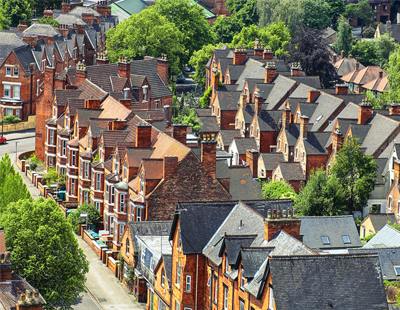
Agents have remained calm in the light of Nationwide’s house price index which shows the first annual fall for eight years - albeit a dip of just 0.1 per cent.
Jeremy Leaf, the north London estate agent who is also a former RICS residential chairman, says: “After recording its largest monthly fall for more than 11 years in the last survey, the widely-respected Nationwide house price index shows continuing flat picture in June. We have seen a similar situation emerge on the ground, at least as far as prices are concerned, but not with activity.
“Prices are being kept in check by affordability issues and more supply gradually becoming available. But demand is picking up as some buyers emerge from enforced confinement in unsuitable property and or relationships to take advantage of continuing low interest rates, while sellers are more realistic.
“Looking forward, we expect the house market to be more active than the flat market as many young people are still nervous about job prospects with furlough benefits gradually coming to an end in the next few months.”
Another London agent - Marc von Grundherr, director of Benham and Reeves - says: “With such a severe lack of market activity, there was only ever going to be sharp declines and this turned 360 degrees overnight once the market did reopen. As a result, we expect to see house price growth swing sharply in the opposite direction over the coming months.”
Neil Cobbold, chief sales officer at industry supplier PayProp, also believes there is likely to be recovery eventually, counteracting the Nationwide figures.
"Demand for homes to buy and rent has bounced back impressively over the last seven weeks, but it will take some time for transaction volumes to return to normal. House price growth is therefore likely to remain suppressed in the coming months” he says.
"As the market enters a traditionally busy autumn period over the next few months, the multiple impacts of the pandemic on housing transactions and property prices will continue to become clearer” he adds.
The main siren voice in the industry comes from the chief executive of new PropTech platform Twindig - Anthony Codling, a former analyst at investment bank Jefferies - who says: “Unfortunately, I don’t think we have dodged a bullet: with mortgage approvals down 86 per cent year-on-year in May, there are more downside risks to future house prices than upside risks in my view. London looks particularly frothy.”
The full Nationwide data shows house prices slipping annually by 0.1 per cent in June but down a more concerning 1.4 per cent month-on-month; that follows a 1.7 per cent drop the month before.
"It is unsurprising that annual house price growth has stalled, given the magnitude of the shock to the economy as a result of the pandemic. Economic output fell by an unprecedented 25 per cent over the course of March and April - almost four times more than during the entire financial crisis" according to Nationwide's chief economist Robert Gardner.
Gardner expects housing market activity to "edge higher in the near term" but will, for the rest of this year at least, remain below pre-pandemic levels.
"Nevertheless, the medium-term outlook for the housing market remains highly uncertain. Much will depend on the performance of the wider economy, which will in turn be determined by how the pandemic and restrictions on activity evolve (including any behavioural shifts)" he adds.
Gardner believes government policies to bolster the wider economy "should set the stage for a rebound once the shock passes", which in turn should "help limit long-term damage to the economy.”
He concludes: "These same measures should also help ensure the impact on the housing market will ultimately be less than would normally be associated with an economic shock of this magnitude.”












.png)


.png)




Join the conversation
Be the first to comment (please use the comment box below)
Please login to comment